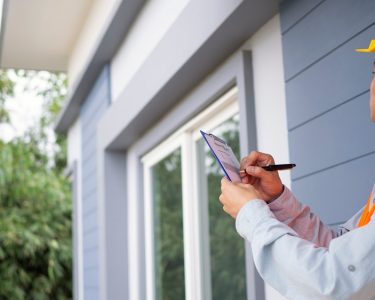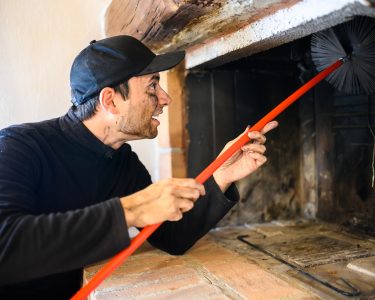When you’re selling a home in Brooklyn, a successful home inspection plays a huge role in sealing the deal. A great home inspection makes buyers more confident in your home, and can also make the sale faster, as well as potentially increase the value of your home. This article will cover essential steps Brooklyn homeowners can take to make sure their home inspection has a positive outcome, like repairs, cleaning tips, and other strategies for home inspection preparation.
Understand What Inspectors Look For
Home inspection in Brooklyn takes several elements of your property into account, including structural elements like the foundation, walls, and roof, as well as safety features such as electrical, plumbing, and HVAC systems. Many older Brooklyn homes have issues like outdated wiring, foundation cracks, and worn-out roofing. Knowing which of these to prioritize is a big help when you’re preparing for a home inspection.
Inspectors have standards they need to stick to, and they’re set by organizations like the International Association of Certified Home Inspectors (InterNACHI). They’ll look at many of your home’s aspects like the major systems, structures, exteriors, plumbing, electrical systems, and heating and cooling units. As a result, you should make targeted repairs and fix any potential issues with these aspects before the inspection.
Complete Necessary Repairs Ahead of Time
If there are any visible defects, they could negatively impact the inspection report, so you’ll want to fix what you can. Minor repairs, like fixing leaky faucets, replacing broken windows, or securing loose railings, are simple but make a huge difference in the impression your home makes on the inspector.
Of course, you should hire a professional for bigger problems like leaks in the roof, problems with the foundation, or electrical systems that aren’t up to code. Professionals make sure to do the job right and avoid future disputes or delays during the negotiation phase. Make sure to secure permits if needed for any work you have done, since unpermitted DIY repairs are a huge red flag to home inspectors.
Clean and Declutter the Home
You can make a much better impression on the home inspector when your home is clean, and a clean home also allows them to do their job more efficiently. Clutter can make it harder to access important areas, making the inspection process longer and more expensive. Make sure to clean areas that are often overlooked, like basements, attics, and crawl spaces, which are incredibly important during inspections.
Cleanliness is a reflection of how well the home has been maintained, and high levels of it tend to be a green flag for home inspection in Brooklyn. Clean the windows, scrub the floors, and dust off the surfaces to present your home in the best light. A bright, well-maintained home is more likely to pass inspection with less issues.
Test and Replace Essential Home Fixtures
You want to make sure that important, potentially lifesaving elements like smoke detectors and carbon monoxide alarms are working properly before the inspection. They play an important role in keeping you safe, so they’re important parts of the home inspection. Inspectors will also check light fixtures, electrical outlets, and basic plumbing elements. Be sure to replace burned-out light bulbs, clean gutters, and make sure all the doors and windows open and close properly will keep unnecessary negativity off the home inspection report.
Provide Easy Access to Key Areas
To keep in home inspection process smoothly, make it easy for the inspector to access important parts of the home, including the fuse box, water heater, and other major appliances. Make sure there are clear paths and access to these areas, as well as attics, basements, and crawl spaces. If there’s anything that would block entry or otherwise make it difficult, remove it.
Any locked areas should have clearly labeled keys provided to the home inspector. This demonstrates how prepared you are and helps the inspector get the job done efficiently, which often leads to a quicker, more favorable inspection report.
Inspection Documents Preparation
It can be extremely helpful for the inspector if you have all the necessary documentation ready. Gather your records of recent repairs, maintenance, warranties, and any upgrades to the home. When you provide them with this information upfront, you answer potential questions the home inspector may have before they even ask. Presenting home repair documentation for inspection also has the added benefit of demonstrating how well you care for your home.
Documents like receipts for work done, appliance manuals, and warranties lend credibility to what you claim about the home’s condition. This transparency leads to a smoother inspection process and builds trust with potential buyers.
Be Ready for the Day of Inspection
Plan to be out of the house for a few hours when the inspection day comes. This way, the inspector can do their job in an unbiased manner and without distractions. Before you leave, secure any pets and ensure the home is tidy. Let in some natural light by opening the blinds and curtains, as well as turning on the electrical lights so the inspector can see your home in all its glory.
Having a checklist of last-minute tasks, like taking out the trash, wiping down counters, and doing a quick sweep of floors, can keep your home in top condition when the inspector arrives.
Using the Home Inspection Preparation Checklist
Preparing your Brooklyn home for a successful inspection takes a bit more than just cleaning up. When you understand what inspectors look for, complete necessary repairs, ensure accessibility, and have all your documentation in order, you significantly improve the outcome of your inspection. Taking these steps makes your inspection process smoother and makes your home easier to sell.
With the right preparation, your home inspection in Brooklyn can be a positive experience, paving the way for a successful transaction. Whether you’re dealing with minor repairs or addressing larger issues, being proactive plays a huge role in making sure your home passes inspection with flying colors.





